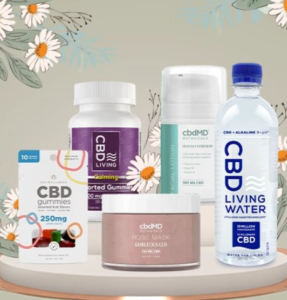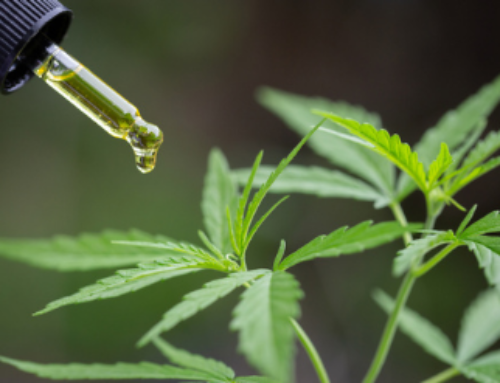CBD also known as cannabidiol has quickly begun to take over the industry as the next big thing in the world of wellness. Considering that benefits range from simple pain relief to management of the side effects that come to the forefront during cancer treatment. There is a lot that CBD claims to help with. In such a case, it is natural that Chronic Joint pain is another thing that CBD might be able to help with.
There are multiple reasons why someone might be suffering from chronic joint pain, from old age to injuries sustained during physical activity, chronic joint pain is an unbearable pain that one goes through. There are only so many ways one can manage it. The usual ways to manage pain include opioids that come with their own set of side effects. So, in such a case, it is important to figure out alternate ways to manage pain. One of the leading ways seems to be by using CBD. Today we will be having a comprehensive look at how CBD can help manage chronic pain.
What Is CBD?
CBD is one of the many cannabinoids that are naturally present in the cannabis/hemp plant. It is extracted and used in a variety of CBD-based products to help people manage various health issues including but not limited to anxiety, pain management, and epilepsy. Our aim today is to figure out how CBD will help manage and relieve chronic pain.
Let’s start with one other question first,
What is the Legal Status of CBD?
Okay, so this is something that keeps cropping up again and again. With good reason, however, CBD is still sort of a grey area in the United States. That is because cannabis still falls under the category of a scheduled drug in the United States. This means that depending on the state where you are the legality and rules keep changing.
But when it comes to CBD, it can be derived from not only cannabis but also hemp. As per the 2018 Farm Bill, hemp and its derivatives are legal. So, when we talk about CBD in isolation, we are more than often referring to the hemp-derived variant that contains less than 0.3% of THC.
CBD is perfectly legal throughout the country but still before buying any product have a glance at the laws regarding CBD in the area that you reside, just to be on the safe side.
How Does CBD Help With Pain?
CBD as well as other cannabinoids act in the cannabinoid receptors that are located throughout our bodies. These receptors, in tandem with the naturally occurring cannabinoids, create what is known as are endocannabinoid system(ECS).
The ECS also contains a complex cell signaling pathway that is present in the central nervous system and the immune system.
There are two types of cannabinoids; these are endogenous and exogenous cannabinoids. Endogenous are the naturally occurring lipids present in the body. Exogenous cannabinoids are not produced by the body but instead are the ones that part of the cannabis/ hemp plant like CBD, THC, CBG, and CBN.
These cannabinoids bind to the endocannabinoid receptors attached to cells. This binding action is responsible for a large number of cellular responses that influence pain signaling pathways.
There are plenty of small-scale studies that show that CBD does have the potential to help manage pain, the trick is to ensure that you dose yourself correctly which is also an inherently personal reaction. Every ECS system is built differently. So, what works for one person does not necessarily mean it has to work for you.
How Can You Use CBD?
There are plenty of different forms in which CBD is available in the market. This includes but is not limited to oils, tinctures, edibles, capsules, topicals, and patches.
Every form of consumption has its own set of pros and cons, so it is always advised that you try it yourself and then decide what works best for you. Gummies, edibles, and capsules are all created for oral ingestion and take a slightly longer time for the effects to set in. Whereas something like topicals might show their effects instantly but will only provide highly localized relief.
Oils and tinctures are some of the most versatile ways for you to get your daily CBD dosage. You can either add them to the food that you normally take or take them sublingually as they are.
With absolutely every product you need to ensure that you follow the directions and the dosage information that is mentioned behind the products. As that will give you a good baseline, to begin with.
There is just one simple piece of advice that is given when it comes to dosing CBD. Start small and go slow. You can work on increasing the dosage as you move along but using too much might lead to less than pleasant side effects.
How To Pick The Perfect CBD Product
The FDA does not regulate commercially available CBD products. That puts the onus on you to take care of the products that you are buying from the market to help deal with your condition.
 The best products available in the market usually come with a third-party testing certificate. This is something you should always look out for. These laboratories test products for pesticides, microbes, heavy metals, and harmful chemicals.
The best products available in the market usually come with a third-party testing certificate. This is something you should always look out for. These laboratories test products for pesticides, microbes, heavy metals, and harmful chemicals.
In the end, products that undergo these tests will have a Certificate of Analysis, a document that has information regarding the product’s CBD potency, presence of THC, and other safety test results.
If you can’t find a COA, then avoid the product.
Most preliminary clinical and animal studies point towards the fact that CBD will help relieve pain. But still, long-term research is needed to back all the findings. CBD is safe for the most part, barring some side effects like tiredness and appetite changes.
So, just ensure you have a discussion with your doctor before you incorporate CBD in your day-to-day wellness routine.




